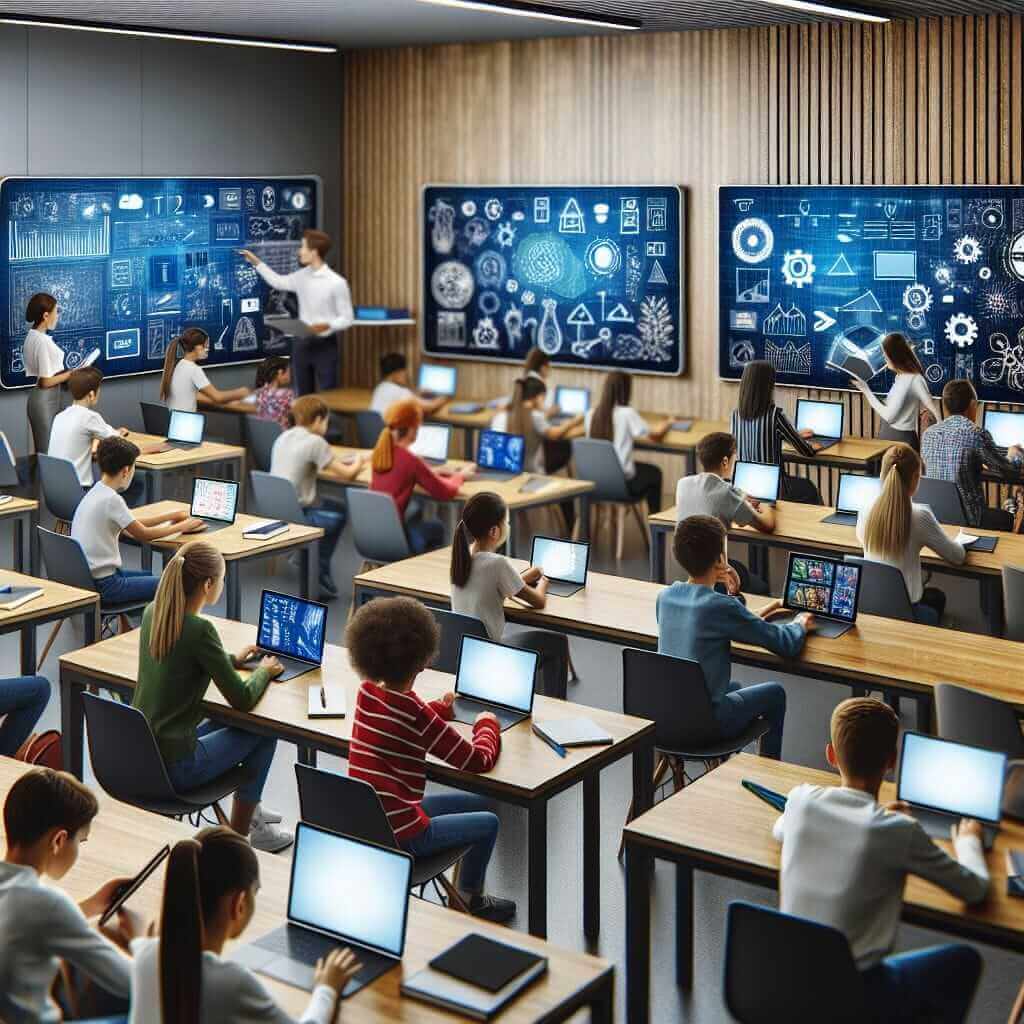The intersection of technology and traditional education is a hot topic, frequently appearing in IELTS Writing Task 2. This essay will delve into this issue, providing a comprehensive analysis and a sample band 8 response.
Here are some potential essay prompts related to this topic:
- To what extent do you agree or disagree that technology has revolutionized traditional education methods?
- Discuss the advantages and disadvantages of integrating technology into the classroom.
- Some people believe that technology distracts students from learning, while others argue it enhances the learning process. Discuss both views and give your opinion.
Sample Essay: Analyzing the Impact of Technology on Education
For this example, let’s choose the first prompt:
To what extent do you agree or disagree that technology has revolutionized traditional education methods?
Analysis
This essay requires you to present a clear stance on whether technology has drastically changed traditional education or not. You need to provide compelling reasons and examples to support your viewpoint.
Model Essay
It is an undeniable fact that technology has significantly impacted various facets of modern life, and education is no exception. While some argue that this impact has been revolutionary, others believe it is evolutionary. This essay will argue that although technology has brought about substantial changes, it has not completely revolutionized traditional education methods.
On the one hand, technology has undoubtedly enhanced the learning process in several ways. Firstly, the internet has made vast amounts of information readily accessible to students, breaking down geographical barriers and providing them with opportunities to explore subjects beyond the confines of textbooks. Online libraries, educational websites, and interactive learning platforms offer students a wealth of knowledge at their fingertips. Secondly, technological tools such as laptops, tablets, and interactive whiteboards have transformed the traditional classroom setting into a more dynamic and engaging learning environment. These tools facilitate interactive learning, multimedia presentations, and collaborative projects, making education more stimulating and enjoyable for students.

However, arguing that technology has revolutionized traditional education methods would be an overstatement. While technology has introduced valuable tools, it has not fundamentally altered the core principles of education. The role of the teacher, for instance, remains crucial in guiding students, fostering critical thinking, and providing personalized feedback, even with the advent of online learning platforms. Moreover, concerns remain regarding the potential negative impacts of technology in education. Excessive screen time can have detrimental effects on students’ physical and mental health, while the potential for distraction and cyberbullying poses challenges that traditional education methods did not present.
In conclusion, while technology has undoubtedly brought about significant improvements in education by enhancing accessibility, engagement, and collaboration, it has not revolutionized the fundamental principles of teaching and learning. The role of the teacher, the importance of critical thinking, and the need to address the potential downsides of technology remain as relevant as ever. Therefore, it is more accurate to perceive the impact of technology on education as evolutionary rather than revolutionary.
(Word count: 322 words)
Writing Tips
- Clear Argument: Ensure your essay clearly states your position on the extent of technology’s impact.
- Balanced View: Acknowledge both the positive and negative aspects of technology in education.
- Specific Examples: Use concrete examples to illustrate your points (e.g., specific online learning platforms, educational apps).
- Formal Tone: Maintain a formal tone throughout your essay, using academic vocabulary and avoiding slang or colloquialisms.
Vocabulary
- Revolutionized (verb): /ˌrɛvəˈluːʃəˌnaɪzd/ – changed something completely and fundamentally
- Facets (noun): /ˈfæsɪts/ – particular aspects or sides of something
- Evolutionary (adjective): /ˌiːvəˈluːʃəˌnɛri/ – relating to a process of gradual development
- Confines (noun): /ˈkɒnfaɪnz/ – the limits or boundaries of something
- Dynamic (adjective): /daɪˈnæmɪk/ – characterized by constant change, activity, or progress
- Facilitates (verb): /fəˈsɪlɪˌteɪts/ – makes an action or process possible or easier
- Advent (noun): /ˈædvent/ – the arrival of a notable person, thing, or event
- Detrimental (adjective): /ˌdɛtrɪˈmɛntəl/ – causing harm or damage
- Cyberbullying (noun): /ˈsaɪbərˌbʊliɪŋ/ – the use of electronic communication to bully a person
- Overstatement (noun): /ˌoʊvərˈsteɪtmənt/ – an exaggerated statement
Conclusion
The integration of technology into education is an ongoing process with profound implications. By understanding the various facets of this issue and developing strong writing skills, you can effectively address this topic in your IELTS Writing Task 2 and achieve a high band score. Remember to practice writing essays on similar themes, paying attention to vocabulary, grammar, and structure.